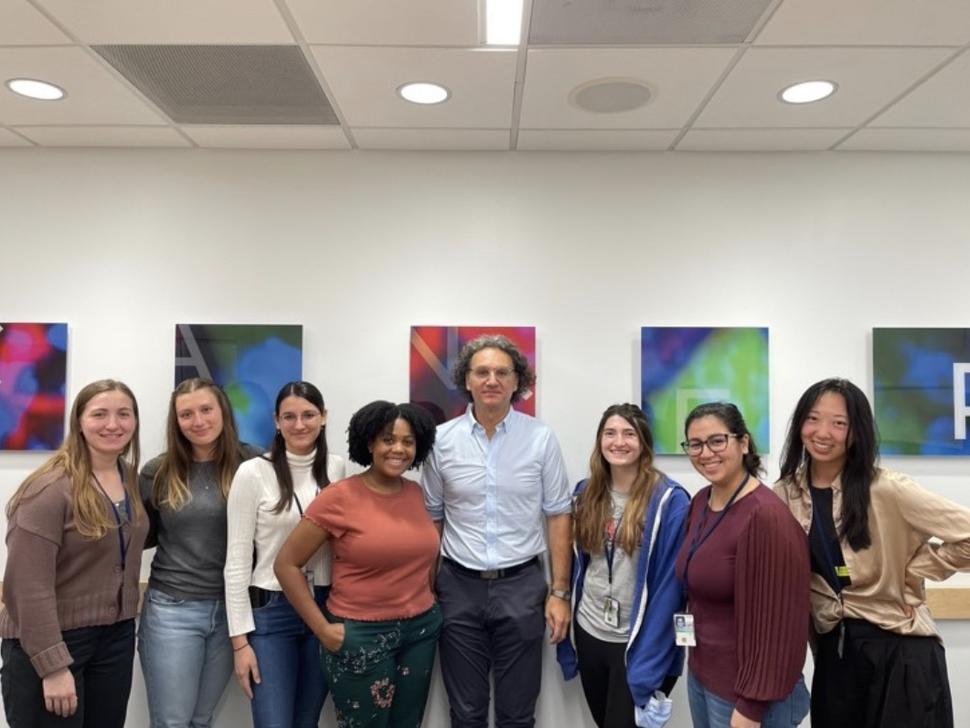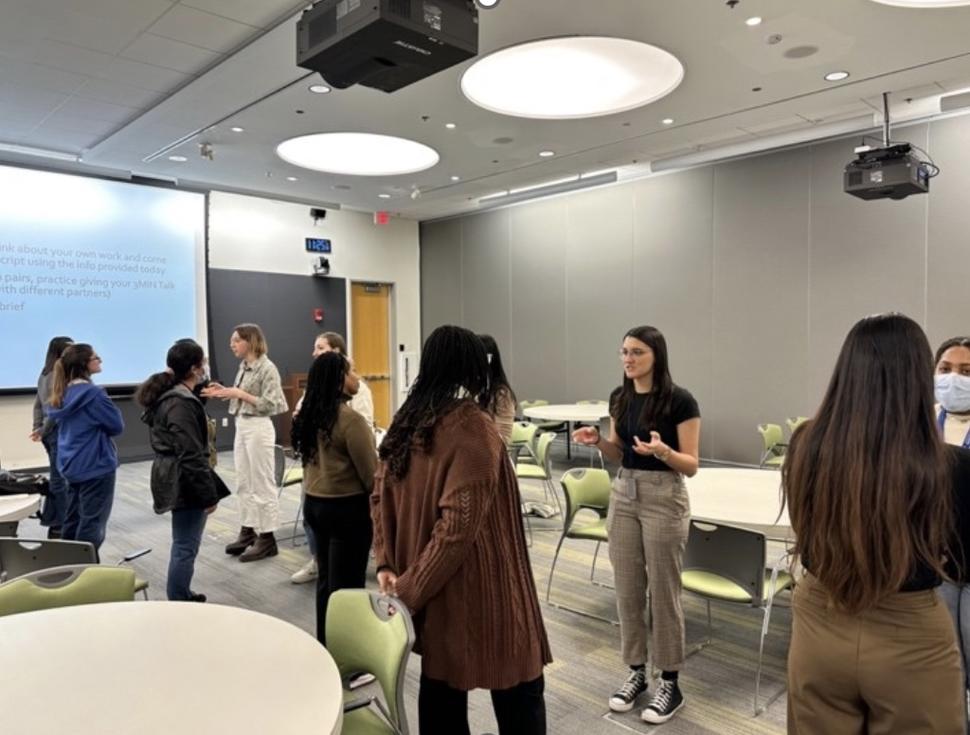The Cancer Research Postbac (CRP) program (formerly known as Introduction to Cancer Research Careers) provides recent college graduates the opportunity to complete a paid postbaccalaureate fellowship at the National Cancer Institute (NCI). Candidates will have the ability to spend up to 2 years conducting full-time research in basic and clinical research, cancer epidemiology and genetics research, cancer control science, or global health.
Similar to the general NCI Postbac Program, CRP Fellows are expected to spend 40 hours a week conducting research, attending meetings with their research group, and participating in related workshops. However, CRP aims to provide valuable professional development designed to advance your career in biomedical research. The CRP cohort meets monthly, as well as quarterly with postbacs in similar programs across the NIH which builds a sense of community and extends networking opportunities. Fellows are also eligible to receive travel support to attend a scientific conference to further enhance their postbac experience.
Training at NCI makes individuals highly competitive for future academic or job pursuits. Many of our CRP Fellows desire to go to medical or graduate school. In combination with the other NIH offerings, our fellows receive application and interview support and are successful at achieving their goals. After completing their postbac, CRP Fellows have typically gone on to complete graduate school or medical school or have entered the scientific workforce.
How to Apply
Information on eligibility, and the application and selection processes can be found at Train at NCI. NCI is committed to training the next generation of scientific leaders.
The application cycle is currently closed.
For Additional Information
If you have questions about the program or application process, please contact ncicrp@nih.gov.

